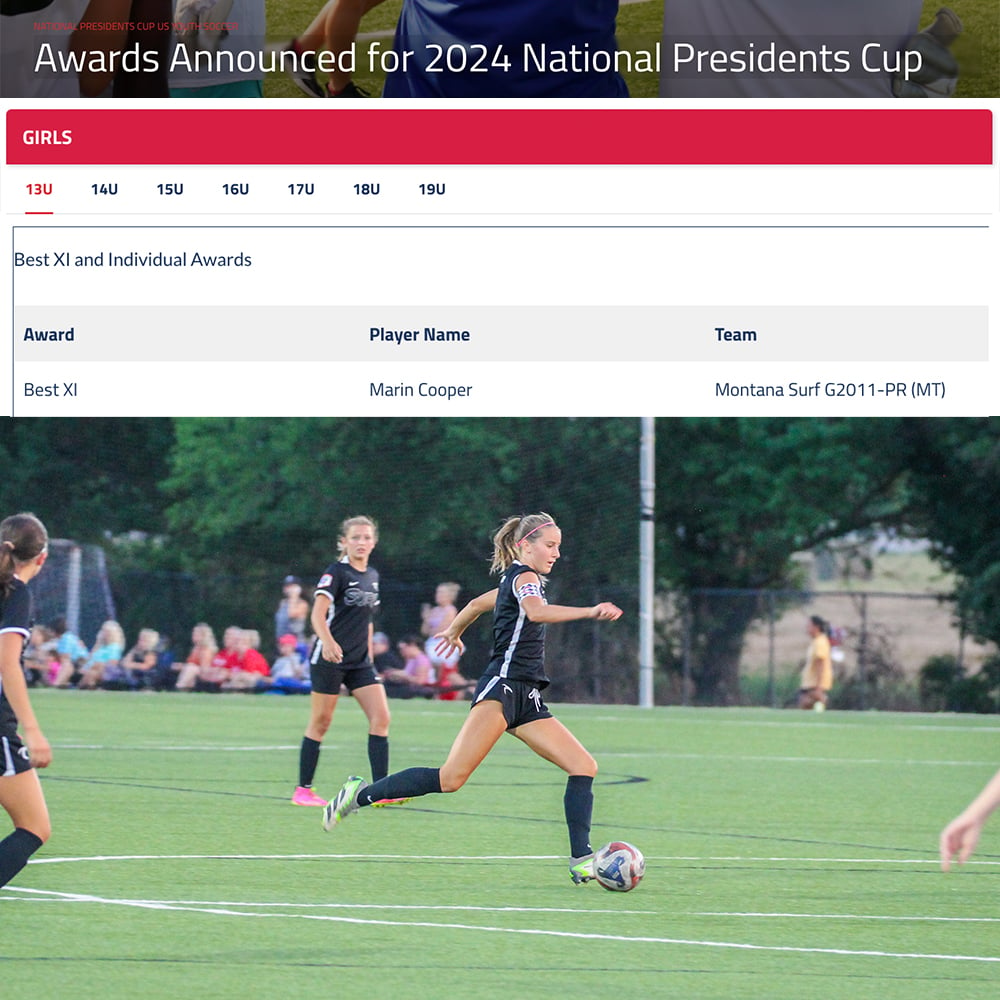by Cate2
Share
Share

How to Talk to Your Kids About Sports: A Game Plan
Youth sports can feel like a roller coaster of emotions for both kids and parents. For young children who are just learning to regulate and communicate their feelings, the highs and lows of competition can be tricky to navigate, but also offer priceless opportunities for emotional development.
How can we, as parents, take advantage of these opportunities? Montana Surf Soccer Club’s Academy Director, Joel Harris, recommends that parents develop a game plan for talking to their kids. “At the beginning of the season, coaches set goals with athletes and discuss the steps we will take to reach them. You can make a game plan with your kids, too. Have a conversation with your child about how you can best support them throughout the season. Find out what they need from you and use that as your guide.”
How to make a game plan that works for your family:
BEFORE THE SEASON BEGINS
-
Start with a conversation about the purpose of sports and why your child loves to play. What is their goal? Is it winning or is it having fun with friends, being outside, and increasing their physical fitness?
Less than 10% of youth athletes go on to play a sport in college and fewer than 2% of college athletes go on to a professional team. Most kids are participating in sports because it is fun. Once you establish your child’s purpose, you will be able to honor it throughout the season. Paige Taylor, a Licensed Clinical Professional Therapist and mom of 3 competitive athletes, recommends focusing on the emotional development and benefit of sports with kids as opposed to winning and losing.
-
Give your kids the words to express their joy or frustration. Winning and losing are opportunities to acknowledge feelings and learn to communicate them. Practice at home. Examples might be “I am sad about losing but I know it was just a game,” or “I feel proud of myself for playing hard even though I was tired.”
-
Ask your child what they need from you after a game. Work together to make a post-game plan. Families with older kids might decide that a post-game text message from child to parent works well. The child might say “I don’t want to talk about it,” or “Let’s celebrate,” giving parents a clear cue about what to do next. Other families might have a standard open ended question like “How did your game feel today?” Some might have a different procedure for wins than for losses.
Taylor takes a different approach with each of her three children.”Our oldest child tends to hold on to her performance and judge herself harshly in an internal way. We give her space and do not talk with her right away so she can reframe her view of the game. Our middle son wears his heart on his sleeve and things are either amazing or terrible. With him, we have learned to engage with him right after the game, listen to his view, and then help him reframe the outcome. Our youngest son is incredibly optimistic and is still “undefeated” in his mind. With him, we tend to move his focus away from the outcome of the game toward a moment where he worked his hardest or a moment he was most proud of.”
AFTER A GAME:
-
Take cues from your kid and let them lead the conversation. Leave feedback and analysis to the coaches, and help your child by being a supportive listener.
-
Don’t make assumptions about how your athlete is feeling. Sometimes athletes feel great about a loss because they were challenged and played better than they ever have. A win could feel disappointing to an athlete who missed a goal or who was left out of a play.
-
What’s the best thing to say when your kid tells you they played terribly?
Coach Harris advises parents not to react or to immediately respond with “You played so well.” Instead ask, “Why do you say that?” or “Why do you feel that way?”
-
If your child wants to talk about what they could do better next time, focus on factors that are under their control. More sleep, eating healthy foods before the game, putting in their best effort, and maintaining a positive attitude are all things they can control.
-
Put the focus on sportsmanship. Taylor shared, “If our kids have heard one thing over and over from us, it is us highlighting the moments where they showed great sportsmanship or grace. We have tried to teach them that in order to be a good winner, you must learn how to lose well. A win not achieved with your character intact is a hollow win.”
-
Encourage your child to always end on a high note. Make it a practice to leave each game with two positive takeaways. “I gave all of my effort and I was a good teammate.”
“The most important thing we can do for a young athlete is encourage a love of the game,” says Coach Harris. “In my experience, players need only hear about a simple moment of success in a game, this acknowledgement of effort and execution at the smallest level is often enough to make the whole experience worth it. The most important thing to tell your player is ‘I love watching you play!’”
STAY IN THE LOOP
Subscribe to our free newsletter.
Montana Surf teams were featured in the Bozeman Chronicle after winning 4 State Champion Titles Click here to read the article Four Bozeman-based teams won state titles this past weekend at the Montana Youth Soccer Association’s Montana State Cup. Forty-four total teams participated in 13U-19U leagues, with winners qualifying for the US Youth Soccer Far […]








